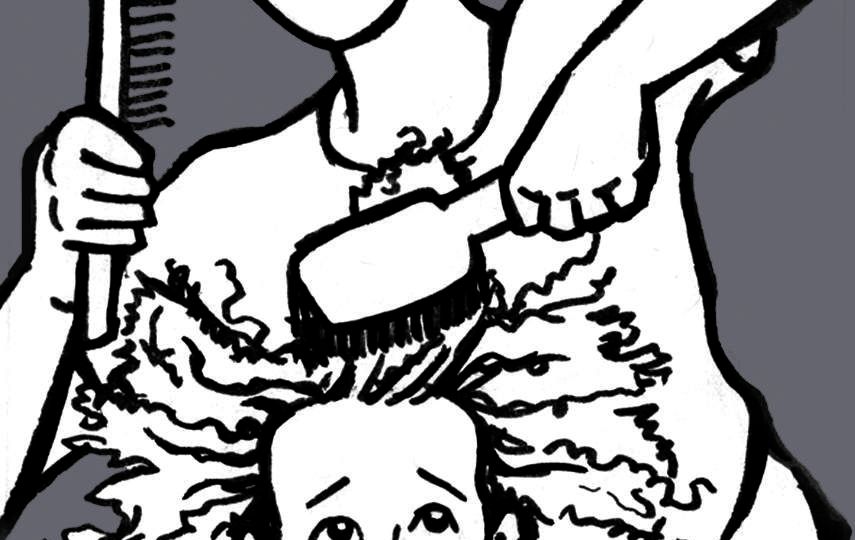
Three years ago in Uniontown, Ohio, same-sex partners Jennifer Cramblett and Amanda Zinkon were informed five months into Cramblett’s pregnancy that sperm from an unintended donor of African heritage was mistakenly provided for the artificial insemination. As a result, Cramblett and Zinkon’s daughter Payton is mixed-race rather than Caucasian, like her parents. Cramblett is in the process of suing the Midwest Sperm Bank with the intention to force a change in company policy, as well as for financial reparations for the family to pay for therapy and to relocate to a city more tolerant of racial diversity.
Among the new parents’ greatest fears is that they will be incapable of dealing with problems their daughter may face, as trivial as how to style her hair to more substantial issues of possible discrimination in their small, purportedly conservative hometown. Cramblett’s attorney reflected this idea in an interview with CNN earlier this month.
“Uniontown is a wonderful town, wonderful people, but there are no biracial children and no mixed marriages,” he said. “We need to relocate Jennifer and her family to a town that offers that type of diverse culture.” It is sensible that the pair intends to help their daughter avoid scorn, but the dubious fear of being unable to relate to their daughter also seems to be central to their decision.
This is a fairly open-and-shut court case, in the sense that the sperm bank is clearly guilty in misrepresenting the product provided. By sharing the wrong sperm, even unintentionally, the company undoubtedly violated a standard trade agreement with consumers. From a sociological standpoint, however, it is nuanced and complicated. Taking out of the equation the social status or ideals of the parents, the fact is that they were provided with an outcome contrary to what they expected and one that potentially changes their place in the social structure in the community. Cramblett’s attorney referenced the couple’s struggle.
“At times [Cramblett] feels that she is underwater,” he said. “She loves her child to death. But what she needs is assistance in handling it properly.” This case is indicative of a larger issue, and it is important to remember that these parents were thrust into it through no fault of their own.
Overall, the societal issues here are deeply-rooted, nuanced and difficult to evaluate. The fact that parents would feel the need to vacate their current residence and undergo therapy to deal with the issues of having a mixed-race child demonstrates that institutionalized racism clearly still exists. In this case, racial differentiation is clear from almost all parties: the parents fear that their child will have innate differences – like her hair – that they can’t effectively deal with and that the Uniontown community may be incapable of including and accepting a mixed-race child. All these differences are assumed be to intrinsic, and forecast that the child will be ostracized because of her genetics and regardless of her upbringing.
Underlying this conception of race is the fact that even implicitly, racism has a perverse way of forcing itself to the forefront. As people assume that there are irreconcilable differences between races, children like Payton will internalize those beliefs as the norm and continue to propagate them. That is not to say that Payton will take on the traits people assume her to have, but she may realize that she is treated differently for reasons that are likely not clear to her. Ultimately, her life will undoubtedly be different than that of the hypothetical white child the couple intended to have. Race is ever-present in public consciousness and there is no clear way to remove it.
The most impactful change that an individual can make is in her or his own approach, and in turn, allowing those ideas to effect greater change. It is a divisive culture that stigmatizes individuals instead of trying to broaden limited worldviews.
Conlan Campbell campbe1@stolaf.edu ’18 is from Burnsville, Minn. His major is undeclared.
Graphic Credit: ERIN KNADLER/MANITOU MESSENGER

